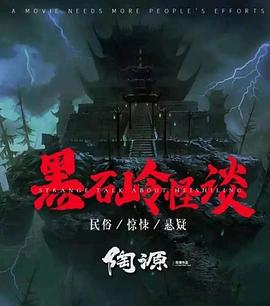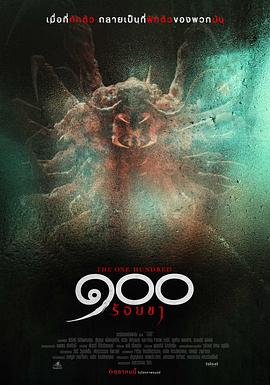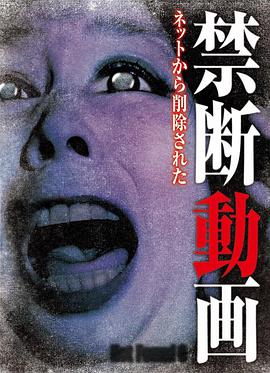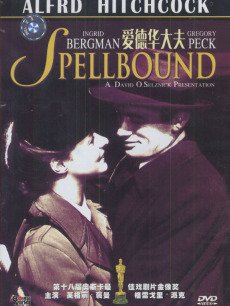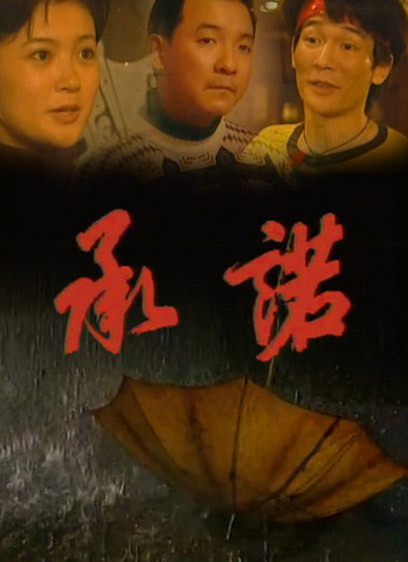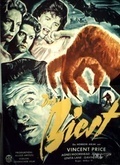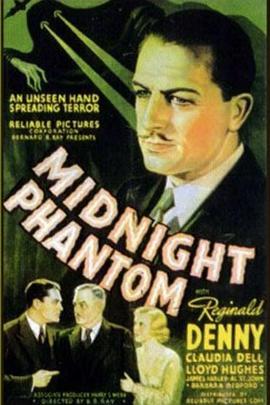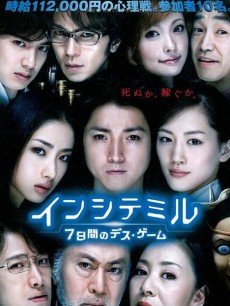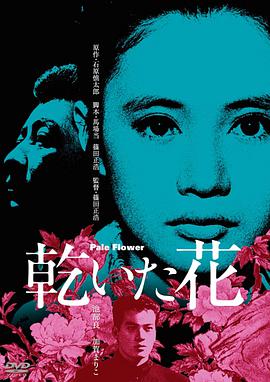
- 主演:
- 池部良,加贺麻理子,藤木孝,杉浦直树,三上真一郎,佐佐木功,KôjiNakahara,原知佐子,宫口精二,东野英治郎,MikizoHirata,山本礼三郎,山茶花究,HideoKidokoro,AkioTanaka
- 备注:
- 超清
- 类型:
- 恐怖片
- 导演:
- 筱田正浩
- 地区:
- 日本
- 年份:
- 1964
- 语言:
- 日语
- 时间:
- 2022-12-20 22:51
仙桃云1
仙桃云2
剧情介绍
【本文首发于《虹膜》公众号】
Noir blooms in the rainy night
作者:Roger Ebert
译者:覃天
校对:易二三
来源:rogerebert.com(2011年5月16日)
https://www.rogerebert.com/reviews/great-movie-pale-flower-1964
At the center of "Pale Flower" stands a very quiet man, closed within himself, a professional killer. He works for a gang in the Yakuza, the Japanese Mafia, and as the film begins he has returned to Tokyo after serving a prison sentence for murder. He did the prison time as the price to be paid for committing a murder, but although we see his gang boss several times, even in a dentist's chair, there is no effort to make him seem worthy of such loyalty. He is an ordinary older man. Muraki (Ryo Ikebe), the yakuza, seems loyal more tothe ideal of loyalty, a version of the samurai code. It is his fate to be a soldier and follow orders, and he is the instrument of that destiny. He thinks his crime was "stupid," but he is observing, not complaining.
如果将筱田正浩的《干花》比作舞台,那么在舞台中央,站着一个沉默寡言的男人,他是一个封闭了自己内心的职业杀手。他在日本黑道中的一个帮派里干活,电影一开始,在结束了自己的刑期后,他回到了东京。他之所以入狱,是为了偿还自己杀人的血债,尽管我们在影片中见过他的帮派头目几次——他坐在牙医的椅子上,看上去只不过是一个普通的老人罢了,根本配不上这个男人的魅力和忠诚。这个男人叫村木(池部良饰),他更忠于忠义的价值观——这是武士一直以来的行事准则。他的宿命是成为一名服从命令的武士,并且成为了命运的傀儡。他认为自己的罪行是「愚蠢的」,但他在悄悄地观察,而不是张口抱怨。
"Pale Flower" is one of the most haunting noirs I've seen, and something more; in 1964 it was an important work in an emerging Japanese New Wave of independent filmmakers, an exercise in existential cool. It involves a plot, but it is all about attitude. Muraki, elegantly dressed, his hair in a carefully stylized cut, his eyes often shielded by dark glasses, speaking rarely, revealing nothing, guards his emotions as if there may be no more where they came from. He glides through nights and an underworld of high-stakes gambling clubs and hooker bars, but lives in a rude and shabby room as if it is merely a cave for sleeping.
《干花》是我看过的,最令人难忘的黑色电影之一,1964年的这部影片是日本电影新浪潮中的一部重要作品,整部影片仿佛是一次存在主义的冷静练习。它不仅有关影片的情节,还与电影的气质有关。村木衣着优雅,精心打理着自己的头发,习惯用墨镜遮住双眼,很少说话,从不展现自己,小心翼翼地守护着自己心中,似乎没有来源的情感。他在黑夜、赌博俱乐部与妓女酒吧织成的地下世界之间穿梭,但自己住在一个破败凌乱的房间里,那里看上去只是一个供他容身和睡觉的地方。
After his first night back in his familiar world, he goes to a clock shop where Shinko (Chisako Hara), his young lover, lives and works. She clings to him abjectly, and they have sex without ceremony. He betrays no affection. He advises her to find a husband and start a family. He returns to the customary life of the gang without ceremony, as if dwelling on the prison term would be unseemly.
在回到他熟悉的世界的第一晚,村木去了一家钟表店,他年轻的情人新子(原知佐子饰)在那里生活和工作。她可怜地依偎着他,他们毫无节制地做爱。村木没有流露出任何感情。他建议新子找个丈夫成家。他悄无声息地回到了帮派惯常的堕落生活中,似乎沉浸在牢狱之灾中是一种不得体的行为。
He likes to gamble. The movie began with a gambling sequence, there are several more of them, and visually they're as elegantly composed as a scene by Ozu. The director of "Pale Flower" is Masahiro Shinoda, whose visual choice is widescreen black and white and whose characters move with the grace of Antonioni's at about the same time. That Shinoda worked a an assistant to Ozu may explain some of his precise framing. The gamblers play the Flower Card game involving thick cardboard chips that click when they touch; listen carefully to the sound track by Toru Takemitsu, the masterful composer who, Shinoda says, told him "record all the sounds and I will use them." He segues from the clicking of the cards to recorded tap-dancing and then to discordant chords, as if the rhythm of the game gives way to angular interior emotions.
他喜欢赌博。这部电影从一个赌博的场景开始,此后赌博的场景在影片中多次出现。从视觉上看,这些场景的构图就像小津电影里的场景一样优雅。《干花》的导演是筱田正浩,他赋予了这部影片宽银幕黑白片的视觉基调,电影中角色的行动带有一种优雅的美感,几乎与安东尼奥尼同时期作品一样。筱田正浩还曾是小津安二郎的助手,这也许可以解释他在《干花》中的一些精巧构思:赌徒们玩着花牌游戏——花牌由厚厚的木片做成,洗牌时会发出咔哒声;观众可以悉心聆听武满彻的配乐,筱田正浩说,他告诉武满彻:「把所有的声音都录下来,我会在影片中用它们。」他录制了花牌的咔哒声,踢踏舞的声音,以及不和谐的弦乐声,这场赌博游戏的节奏,开始让位于主角棱角分明的内心情感。
Seated across from Muraki is a beautiful women, very young, who gambles with the same recklessness she uses to meet his eyes. This is Saeko (Mariko Kaga). Like Muraki, she has no small talk and betrays no emotions. She seems equally indifferent if winning or losing. There is a man at the games who does not play. He is Yoh (Takashi Fujiki), said to be a new employee of the boss. He sits against the wall, regarding the room with aggressive objectivity. Shinoda uses a series of shots in which Muraki leans back to regard this man, who returns his gaze as if to say, "I would kill you or anyone else without a second thought."
坐在村木对面的是一位非常年轻的美丽女子。赌博时,她显得随意而草率,即便和村木的眼神相遇时,也是如此。她叫佐子(加贺麻理子饰),和村木一样,她很少说话,也不轻易流露任何情感。无论输赢,她似乎都同样无动于衷。赌博游戏里,只有一个名为小朝(藤木隆饰)的人没有参与其中,据说他是老大新招揽的帮派成员。他靠墙坐着,以咄咄逼人的眼光看着在座的人。筱田正浩使用了一系列镜头来拍摄角落里的这个男人,村木往后侧了侧身看着小朝,而小朝也回过头来盯着村木,好像在说:「我会毫不犹豫地杀了你或其他任何人。」
Saeko asks Muraki if he knows of a game with bigger stakes. She seems addicted to excitement. She betrays emotion only twice, when after a high-speed drag race on empty city streets she begins to giggle almost orgasmically, and again when she giggles after they are almost caught in a police raid. She says that "Yoh," the malevolent newcomer, seems "exciting." Perhaps she finds it exciting, too, that Muraki is a murderer.
佐子问村木,他是否知道哪里有赌注更大的赌局。她这么做,似乎仅仅出于对刺激的沉迷。她只真实地流露过两次情绪,一次是在午夜空荡荡的城市街道上进行了一场赛车变速赛后,她开始近乎高潮地大笑。另一次,他们几乎被警察突袭后,佐子咯咯地笑了起来。她说,「小朝,」这个神秘、不怀好意的新来者,似乎「令人兴奋」。对她来说,也许村木让她感到兴奋的关键点在于,他是个杀人犯。
Shinoda chose Ryo Ikebe as his star when the actor was at a low ebb, having been fired from a play for freezing onstage. In an interview included with the new Criterion edition of the film, the director recalls Ikebe, depressed, asking, "Why do you want me? I'm just a ham actor." But Shinoda had seen him in Ozu's "Early Spring" (1956) and other films, where he was sleekly handsome, and he says he wanted to feel the quality of a man down on his luck. In this film, Ikebe reminds me of the also handsomeAlain Delonin Jean-Pierre Melville's "Le Samourai" (1967), another film about a detached hit man. Here the performance depend on Ikebe's ability to maintain a Charles Bronson-like impassivity. It is the quality of a man wary of emotion, and the story depends on how he becomes helplessly becomes fascinated by Saeko because she seems even more distant and guarded than he is.
当筱田正浩选择池部良作为《干花》的主演时,池部良正处于事业的低谷,他因为在一部戏剧的演出中卡壳,而被解雇了。在《干花》标准收藏新版的采访中,筱田正浩回忆起池部良失落,抑郁的样子,问他:「你为什么选我?我不过是个蹩脚的业余演员罢了。」但是筱田正浩曾在小津的《早春》(1956)和其他电影中看到过他,在这些电影中,他非常英俊,池部良自己表示想要感受一个落魄男人的命运。《干花》中的池部良让我想起了梅尔维尔《独行杀手》中帅气的阿兰·德龙,这是另一部以疏离、独立的杀手为主角的影片。池部良表演上的平衡,取决于他是否能保持一种查尔斯·布朗森式的冷漠。这是一个对情感持警惕态度的男人该有的品质。另外,影片的故事取决于村木是如何被佐子一步步迷住的,因为她似乎比他更疏远、谨慎。
He warns her against drugs. One night she tells him she has shot up. She says a friendly doctor gave her the shot. But Yoh has the skin and the aura of a drug addict. What does Muraki think? He never reveals. But when the boss asks for a volunteer to murder the boss of a rival gang, Muraki says he'll do it. He doesn't have to. The boss has already given him an exemption because he's just finished one prison term. If you meditate on why Muraki volunteers, I think you will close in on his motivation, and find the theme.
村木警告佐子,离毒品远一点。一天晚上,她告诉他,自己刚刚「来了一针」。她说是一位医生朋友给她打的。但小朝有着瘾君子的气质。村木是怎么想的呢?他从不表露心思。但当老板要求一名帮派成员去谋杀敌对帮派的头目时,村木主动请缨。显然,他不必这么做。老板也没有考虑他,因为他刚服完刑。如果你思考一下村木为什么要主动站出来,我想你会更深入地了解他的行事动机,并能找到影片的主题。
In his interview, Shinoda shows himself familiar with avant garde art. He was chafing at working within the studio system, and even though "Pale Flower" was produced by the major studio Shochiku he considers it an independent film, and so, apparently, did the studio. "After the screening, the writer said it wasn't the film he had written," he recalls, "and that was the excuse the studio needed." At a loss for how to deal with it, Shochiku shelved it for months, although when it was finally released it was a great success, no doubt because it captured the sense of both film noir and the emerging European art films.
在采访中,筱田正浩还声称,自己对先锋派艺术十分熟悉。他对在制片厂系统内工作感到恼火,尽管《干花》是由松竹制片厂制作的,但筱田正浩依然认为这是一部独立电影——显然制片厂也是这么认为的。「放映结束后,编剧马场当说这不是他写的那部电影,」他回忆道,「这是制片厂需要的借口。」在不知如何应对的情况下,松竹公司将《干花》的项目搁置了几个月,尽管当它最终上映时取得了巨大的成功,无疑是因为它显现出了与黑色电影、新兴的欧洲艺术电影相同的美学。
The writer, Masaru Baba, began with a novel by Shintaro Ishihara. His approach was apparently conventional, and he disagreed sharply with Shinoda about the gambling scenes. "We just write 'they gamble,'" he told the director. Shinoda nodded, kept his peace, and used the novel as a basis for shooting the extraordinary card games. The film makes no effort to explain how the game is played, but is visually acute about the details: The goading rhythm of the croupier, the ritual of a card withdrawn from concealment and folded within a cloth, the placing of bets. Shinoda gives great attention to the implacable faces of Muraki, Saeko and (at a greater distance) Yoh. The gambling scenes are not about the game but about the emotional signals being exchanged by these three; Shinoda has little interest in the other players.
马场当从石原慎太郎的一部小说开始改编,写作剧本。他的做法显然是老式的,他在赌博这一场景的呈现上与筱田正浩意见相左。「我们只需要写『他们在赌博』就好了。」他告诉导演。筱田正浩点了点头,保持沉默,他用小说的素材,作为拍摄这些非同寻常的纸牌游戏的基础。《干花》没有努力解释这个游戏是如何玩的,但在视觉上对细节很敏感:庄家的语言节奏,一张牌从隐藏、取出并折叠在布里的庄重仪式,以及下注时纸牌放置的位置。筱田正浩非常关注村木、佐子和在更远处的小朝,这三人冷酷无情的面孔。事实上,赌博的场面不是关于游戏本身,而是关于这三个人之间互通的情感信号;筱田正浩对其他玩家几乎没有兴趣。
Not many scenes take place in daytime. The film is shot mostly indoors, or outdoors on sometimes rainy streets. The opening establishes Tokyo, but Shinoda shot mostly in Yokohama, where an older look and many narrow lanes gave him a feeling he was looking for, of the night pressing down on Muraki. One cat-and-mouse foot chase through empty streets and shadows is particularly well done.
《干花》中几乎没有几场戏是发生在白天的。这部电影大多场景都在室内,有时也会在室外下雨的街道上拍摄。影片一开始,我们就能看到故事发生地——东京的城市景象,但筱田正浩主要在横滨完成了拍摄,那里古老的外观和许多狭窄的巷子,正是他长久以来一直想要的那种效果:夜晚的黑暗,深沉地压在了村木身上。影片中,那场在空荡的街道和阴影中的追逐戏尤其出色。
Although the tone of the film is set by Takemitsu Toru's discordant score, a late climactic killing is scored by an aria from Henry Purcell's opera, "Dido and Aeneas." It goes to slow motion, and is intercut with unexpected stained-glass windows. What is happening here, as you will understand when you see the film, is the equivalent of an orgasm created by Muraki for Saeko.
尽管武满彻的配乐为《干花》定下了基调,但最后一场高潮杀戮戏的配乐来源于亨利·普赛尔的歌剧《狄朵与埃涅阿斯》中的咏叹调。这场戏里人物的动作很慢,并且插入了令人意想不到的教堂彩色玻璃花窗的镜头。当你看完这部电影时,你会明白,这里正在发生的事情,就像村木为佐子创造的一次性高潮。
Film noir is almost always about a central figure who is destroyed by his flaws. This figure often tries to live by a code, even a criminal code, but is defeated by some kind of moral weakness. In noir the fact that you've killed someone may not be a moral failing, but simply an expression of the duties of your milieu. Muraki has schooled himself to not feel, and to not care for Shinko, who cares for him. But by her very inapproachability, the mysterious Saeko defeats his defenses and sets in motion those decisions that cause him to kill again, and trap himself. At the end of the film, he discovers what his choices have left him with. It is an ending of bleak sadness and empty destiny.
黑色电影中的主角,通常总是被自己的缺点所毁灭。这个人常常试图遵守某种准则,甚至是法律准则,但却被自己身上的某种道德弱点所击败。在黑色电影中,杀人的事实可能不是道德上的失误,而仅仅是对主角所处社会环境,一种带有责任感的表达。村木告诫自己,不要对他人产生情感,也不要去在意关心着自己的情人新子。但由于神秘的佐子身上那种疏离的,拒人于千里之外的独特感,她马上击穿了村木的心理防御,并让他再次陷入了伤人伤己的杀戮游戏里。在电影的结尾,村木发现,他咽下的是自己选择的苦果。这是一个充斥着黯淡的悲伤,以及空虚的命运的结局
本站提供的《干花》在线观看地址以及《干花》下载地址来源于互联网。本站并不参与录制和制作,仅提供资源引用和分享,如果本站提供《干花》资源对贵方造成了损失或侵犯了贵方权益,请及时发送邮箱给管理员,我们将在48小时之内撤销有关《干花》所有内容。
- 周热门
- 月热门
- 随机推
- 1纽约屠夫
 0.0
0.0主演:肖恩·韦瑟斯,艾琳·布朗,西贝尔·银菲尼克斯
地区:美国
时间:2016
- 更新至103集完结2玩偶之家
0.0
主演:朴荷娜,王光娜,韩相镇,李恩亨,李豪宰,孙贤周,崔明吉,李宽勋
地区:韩国
时间:2018
- HD3八仙饭店之人肉叉烧包
0.0
主演:李以庄邝佐辉林敬刚黄秋生苏伟南
地区:
时间:0
- HD4鬼哭神嚎2005
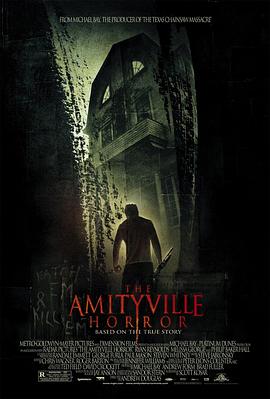 0.0
0.0主演:瑞恩·雷诺兹,梅利莎·乔治,杰西·詹姆斯,吉米·本内特,科洛·莫瑞兹
地区:美国
时间:2005
- HD国语5羊城暗哨
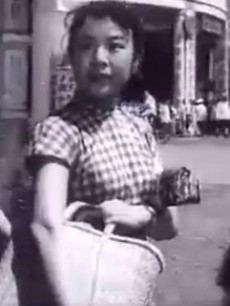 0.0
0.0主演:冯喆,梁明,凌云,狄梵
地区:内地
时间:1957
- HD6老男孩2013
 0.0
0.0主演:乔什·布洛林,伊丽莎白·奥尔森,沙尔托·科普雷,塞缪尔·杰克逊,迈克尔·因佩里奥利,庞·克莱门捷夫,詹姆斯·兰索恩,马克斯·凯塞拉,琳达·伊蒙,埃尔维斯·诺拉斯科,拉米·马雷克,兰斯·莱迪克,汉娜·韦尔,理查德·波特诺,汉娜·西蒙尼
地区:美国
时间:2013
- 更新17咒怨:白老妇
0.0
主演:铃木卓尔,铃木裕树,宫川一朗太,朝美穗香,南明奈,福永真梨佳,中村爱美
地区:日本
时间:2009
- HD8何种谋杀
0.0
主演:SinHyeon-bin,KimHyeok
地区:韩国
时间:2015
- 超清9食人虻入侵
0.0
主演:StefanoChiodaroli、MariaChiaraGiannetta、GiulioGreco
地区:其他
时间:2018
- HD10魔鬼转生终结者
0.0
主演:夏洛特·斯图尔特,安吉拉·范泽斯通,NicholasWorth,MariusStanescu,DanielMarkel
地区:美国
时间:1994
